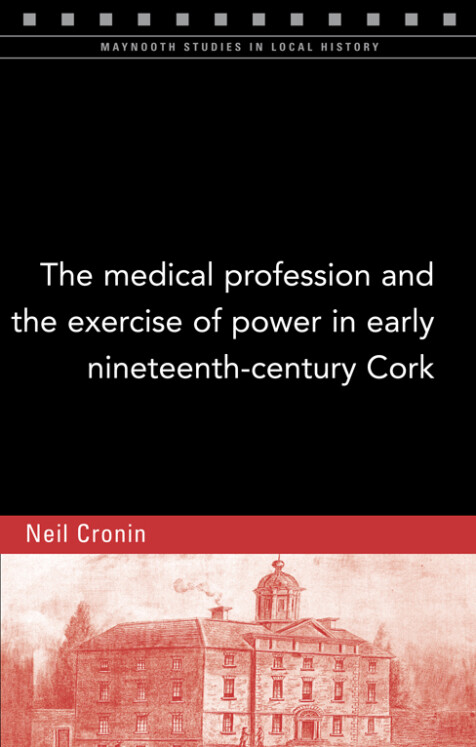The medical profession and the exercise of power in early nineteenth-century Cork
Neil Cronin
In 1820, the surgical management of children with bladder stones in the South Infirmary was criticised by a prominent Cork surgeon, giving rise to a furious and bitter dispute. This work considers this acrimonious episode by examining the backgrounds of the protagonists, the economic and other tensions active in the medical profession of the time, and in particular the dynamics of how power was exercised in provincial Cork of the early nineteenth century. After the turbulent 1790s and the brutal suppression of the rebellion, the Act of Union and the failure to grant Catholic Emancipation ensured that rancour and upheaval continued into the new century. Cork as elsewhere was riven by sectarian and political conflict. Despite an economically resurgent Catholic mercantile class, a dominant elite, small in number, centred on the corporation, had a monopoly of local power, prestige and patronage. These partisan divisions were also reflected in the medical profession. Often, the fault-lines exposed by such quarrels provide insights into society maybe not otherwise apparent.
Part of the Maynooth Studies in Local History series (Raymond Gillespie, general editor). The studies in this series range widely, both chronologically and geographically, over the local experience in the Irish past. They are at the forefront of Irish historical research and represent some of the most innovative and exciting work being undertaken in Irish history today. They provide models that others can follow up and adapt in their own studies of the Irish past, allowing us to understand better the regional diversity of Ireland and the social and cultural basis for that diversity. For a list of all titles published in this series to date, click here.
Neil Cronin is a Cork medical doctor.

